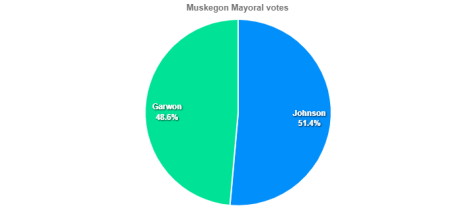Mental illness plays a key role in homelessness
December 13, 2021
Homelessness is easy to see because it is all around us. Mental illness though can’t be seen. Homelessness and mental illness often go together. Mental illness is one of the leading causes of people being homeless. According to Melissa Boughner, director of Muskegon Rescue Mission, “We have millionaires in our shelter who had it all, but lost it all when they sunk into a deep depression.”
Tawon Cooper, a former employee at Brinks Crisis Center of HealthWest says, “Many homeless people would arrive at my program under the influence of drugs and alcohol.” The homeless who are mentally ill will use drugs and alcohol to self-medicate to numb them and keep them from thinking about what is going on. Cooper says, “The county was quick to add medications or increase dosages on current medications. I advocated for a second opinion and in most cases, the prescribed medications would not be the first choice. Medications and needs of the mentally ill were taken more seriously when they had somebody advocating for them.”
Yolanda Hall, Director of Women and Family Ministries at Muskegon Rescue Mission works directly with clients staying at the shelter. She has been with the program for over fourteen years. Hall says, “So many clients come into the shelter presenting with one or more mental illnesses and don’t even know it at the time.” Hall, along with other staff working directly with clients have been trained to observe and recognize signs of mental illness. At the Muskegon Rescue Mission, they set clients up within 48 hours of their arrival to see a case manager. Case managers do an assessment of the client and then refer them to places like HealthWest or Hackley Behavioral where they will be seen by a psychiatrist. The psychiatrist will further evaluate and diagnose them along with prescribing them any medications they may need for their mental illness.
Hall says she has had many clients say to her, “I didn’t know I was suffering from bipolar, depression or anxiety or a combination of these more common mental illnesses seen at the Rescue Mission until I got diagnosed and got on medications. I just felt certain ways on certain days and didn’t know why I was crying.” Many times mental illness causes people to not be able to comprehend and navigate life, which then makes it hard for them to sustain employment and they don’t realize they have bills to pay. They end up losing their housing and many of them have burned bridges over time with family and friends as a result of the mental illness. They have no place to live other than on the street. Many homeless people would rather live on the streets than go to the mission because they don’t want to follow rules.
| Homeless Client Characteristics | Literally Homeless | 1st Time Homeless |
| Unique # of clients (2019) | 38247 | 20213 |
| Unique # of clients (2020) | 30805 | 16050 |
| Changes from prior year | -19.00% | -21.00% |
| # of adults | 23404 | 12296 |
| # of children | 7172 | 3620 |
| # of households | 22704 | 12094 |
| Physical Disability | 8.00% | 8.00% |
| Developmental Disability | 2.00% | 2.00% |
| Chronic health condition | 5.00% | 4.00% |
| HIV/AIDS | <1% | <1% |
| Mental Health Problem | 12.00% | 10.00% |
| Substance Abuse | 4.00% | 3.00% |
Courtesy of 2020 Annual Report-Ending Homelessness in Michigan *More information: Michigan.gov
According to the Substance Abuse and Mental Health Services Administration, 20-25% of the U.S. homeless population lives with some form of mental illness. That is a rate four times higher than the general population, and often that mental illness comes in the form of addiction. According to the State of Michigan website, in 2019 there were 38,247 homeless people in the state. In 2020, there were only 30,805 homeless people. There was a 19% drop in homelessness during the pandemic. In 2020, 12% of the homelessness was due to a mental health problem and 4% was due to substance abuse problems. Untreated mental illness often leads to substance abuse, because drugs and alcohol are used to self-medicate.





